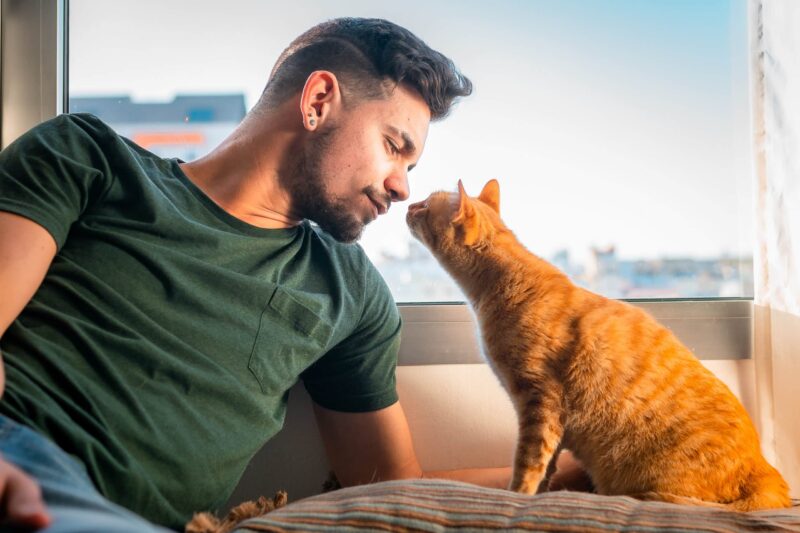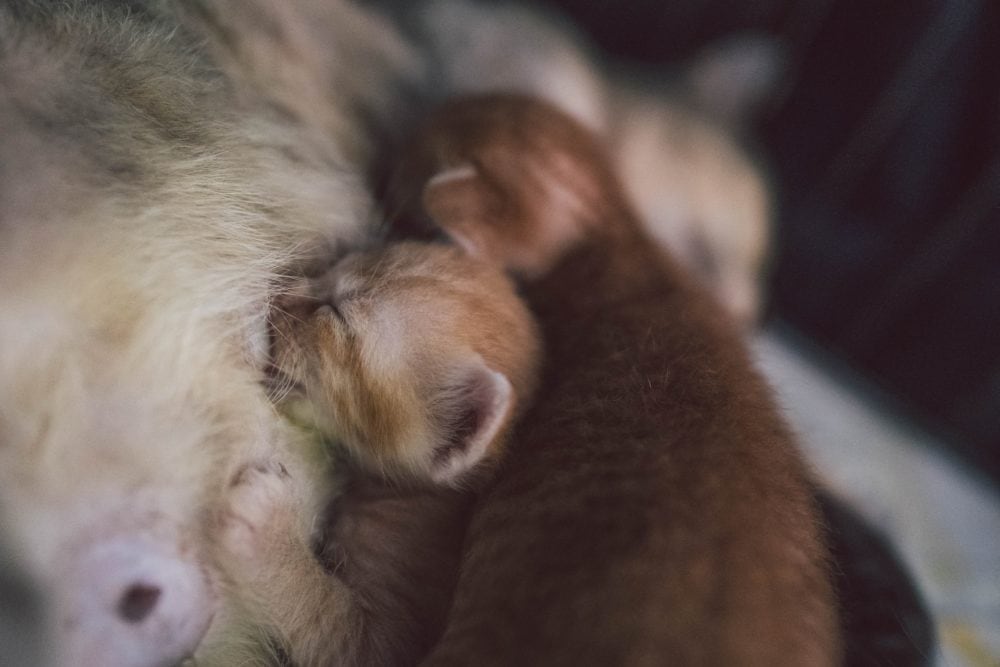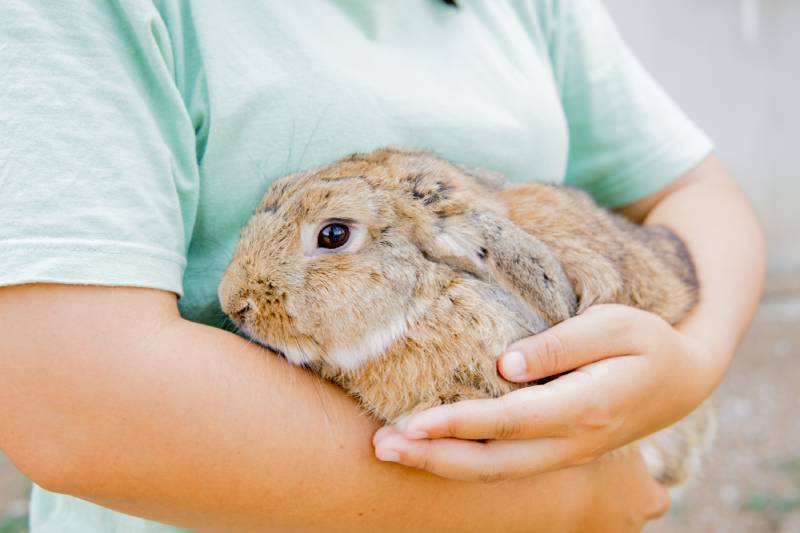VET APPROVED

The information is current and up-to-date in accordance with the latest veterinarian research.
Learn more »Click to Skip Ahead
We love our cats, and most of the time, it feels like they can do no wrong. Then they go and shred your favorite sofa, poop in your shoe, or scratch your arm while playing. Though it doesn’t take us long to forgive and forget, do you ever wonder if our cats feel sorry for upsetting us? Can cats apologize?
The truth is, without being able to really talk to our cats, we can never know for sure what’s going on inside their furry little heads. All we can do is apply what we know about animal behavior, body language, instincts, and our experience with our cats to try to get a picture of how they see the world and their role in our lives.
Do Cats Feel Guilt or Shame?
From what we do know about feline behavior, as with most animals, the concepts of guilt, malice, cruelty, shame, and remorse are largely human emotions that do not apply to the feline experience. That isn’t to say that our cats don’t have feelings, and there is clear evidence that they are capable of love, affection, resentment, anger, and fear, but they are unlikely to experience more complex emotions that involve self-reflection, empathy, or intent.
However, our cats are intelligent and usually quite good at picking up on many human emotions, and although they may not necessarily say sorry, there are some things they may do to appease us.
What Is Anthropomorphism?
When we attribute human emotions or motivations to the actions of animals, we are anthropomorphizing, something Disney has been doing for years! It’s a natural thing to do, and it helps us feel closer to our pets, but it can often lead to misunderstandings, frustration, and even some potentially dangerous assumptions or mistakes. Here are some examples of anthropomorphisms:
| Action | Anthropomorphism | Reality |
| Having kittens | “Every female cat wants to have kittens. They’re such loving mothers.” | Instincts and hormones drive cats to (quite violently!) mate. Once kittens are weaned, mother wants them gone so she can mate again. |
| Catching mice | “He’s so cruel just playing with it and not killing it!” | Instincts tell a cat to hunt and catch when possible because they never know when their next meal will be.
Domestication tells them they don’t actually need to consume the prey. |
| Peeing on your bed | “She must be angry that I brought home a new cat.” | She was here first; you were hers first. She is marking her territory in the hopes of avoiding physical conflict. |
| Being extra cuddly after you were angry about the peeing on the bed | “Oh, she obviously feels bad and is trying to say sorry.” | The sound of your voice and energy you are giving off are unpleasant. In the past, cuddling up to you has caused this to stop and even resulted in treats, so she’ll try that again. |

Are Cats Capable of Apologizing?
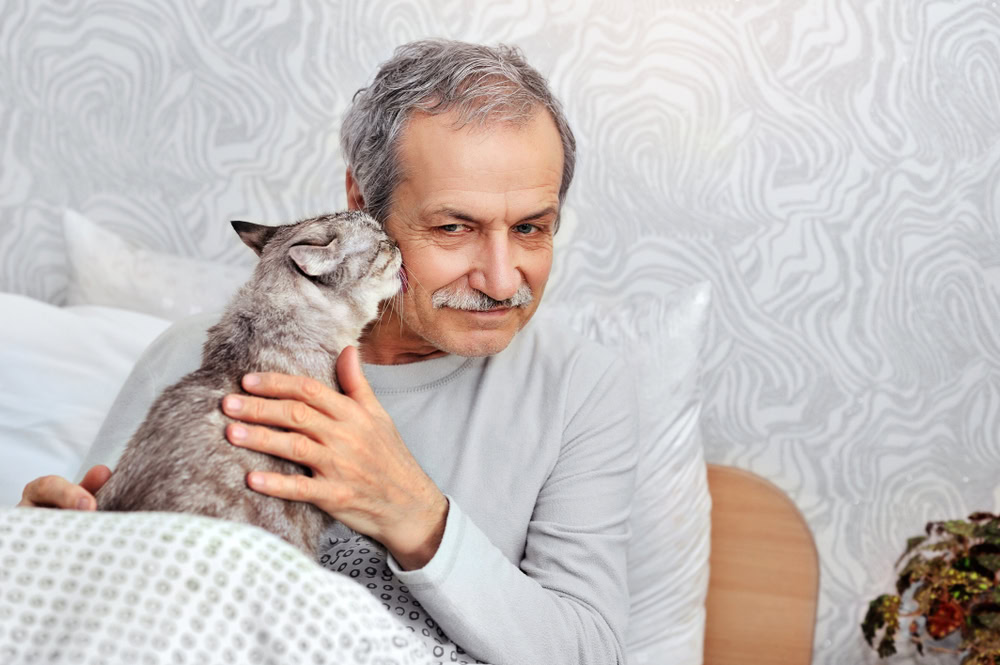
For a cat to ‘apologize’, it implies that they
- are aware of what they did to upset you
- realize how it made you feel
- understand that they are responsible for that
- wish to atone for their actions
The reality, whether we like it or not, is that cats are not wired that way. The behaviors are motivated by survival instincts: actions, rewards, and consequences. The even harsher reality is that our cats don’t do things to make us happy. They do things that make us happy because we then do things that make them happy.
On the flipside, they also don’t do things out of malice or cruelty. If their actions or behavior upsets us, it is merely a side effect of them trying to reach their goal. Even if that goal is to knock a glass of water off the table. Their thought process is a linear ‘action/reaction’ process, free from angst over what people will think or feel about what they are doing. It’s not that they don’t care about our feelings, they just aren’t aware of them.
So although cats aren’t strictly capable of apologizing, they will often engage in behaviors to appease us when we are angry or sad. They just aren’t making the connections between what they did, how we reacted, and how their appeasing behavior helps us feel better. They just know that they don’t like how we sound, feel, or act when we are angry or upset, and that certain things they do will make that go away.

The 7 Appeasing Gestures of Cats
1. Purring or Meowing
The most effective way for a human to apologize is by using their voice. A verbal apology is the most respectful and effective way to voice our remorse and make it right. It may be the same for our cats.
We know that cats meow as a way of communicating with us, and purring is a way to bond with us, jointly bathing in some serotonin. Even if we’re furious, it’s hard to resist a purring kitty.

2. Head Butting or Rubbing
When cats rub up on us, they leave their scent behind to “mark’ us as a way to claim us. This contact is a pleasurable tactile experience for them and usually elicits a positive reaction from us. Head butting of ‘bunting’ is another way that cats will greet and convey closeness to each other and their favored humans. If your cat is confident enough to give you a good bunt when you’re in a foul mood, it’s a sign that you’ve earned their trust enough that they aren’t worried about approaching you even when there’s an angry stormcloud over your head!
3. Grooming You
Cats engage in ‘allogrooming,’ aka grooming each other, as a form of bonding, so if your cat is trying to lick your hand, head, or face, it’s a sure sign that they want to feel close to you. Although cat breath and spiky tongues aren’t necessarily the best combination, it’s worth tolerating a little bit of this proffered affection in order to maintain your relationship!
Just remember to keep them away from your mouth, and do not feel obligated to return the favor!
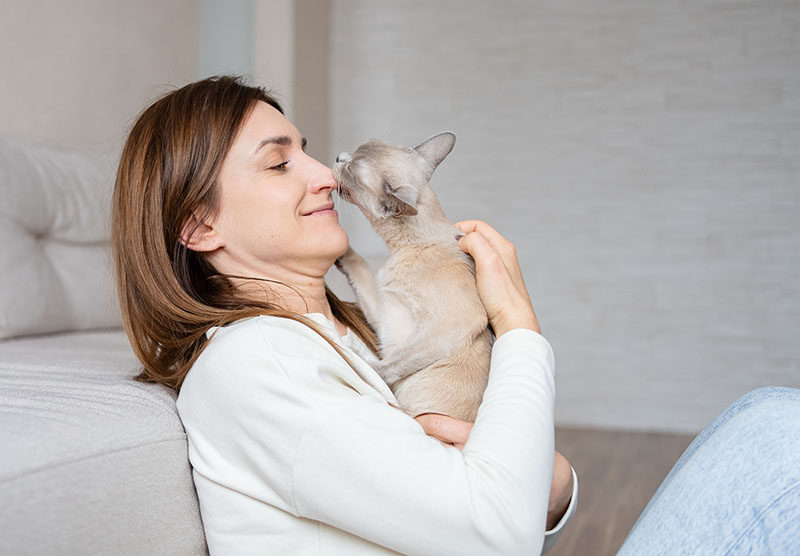
4. Making Biscuits
No, not literally! Although that would earn my instant forgiveness!
This kneading action that cats engage in is reminiscent of when they would suckle from their mother, and adult cats will do it when they feel safe and secure and want to feel closely bonded to you.
5. They May Initiate Playtime
This is an example of when our cats aren’t ‘reading the room,’ but it also shows us that cats aren’t trying to say they’re sorry, they just want you to stop being grumpy. Playtime is always a great way to strengthen your bond with your cat, and it may even help you forgive them for whatever transgression they committed.
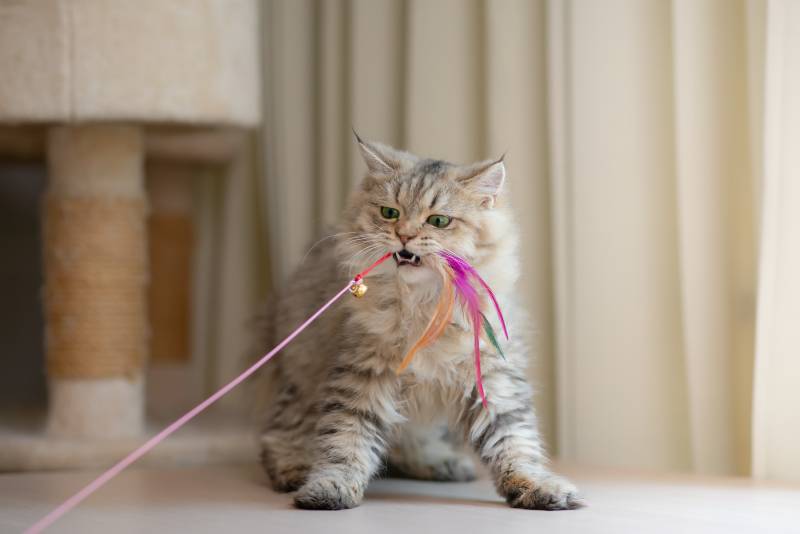
6. Exposing Their Stomachs
Rolling onto their backs and exposing their soft tummy is a significant act of vulnerability; your cat is showing you that they trust you completely. However, do not mistake this for an invitation to reach out and touch the belly – it’s a trap!
Although some cats do enjoy a belly tickle, many follow a strict ‘look but don’t touch’ policy, so appreciate the gesture and go in for a chin tickle instead.
7. Your Cat May Bring You a Gift
Your cat may bring you a gift in the form of a bird or mouse, which ironically may have been the thing that made you mad in the first place. Cats usually bring their prey to where they feel safe and secure because they want to share their catch with you.
It is also a clear way to get your attention, and at the end of the day, that’s what they want. However, they can’t foresee that the attention may be negative! They just want to bring you a gift.
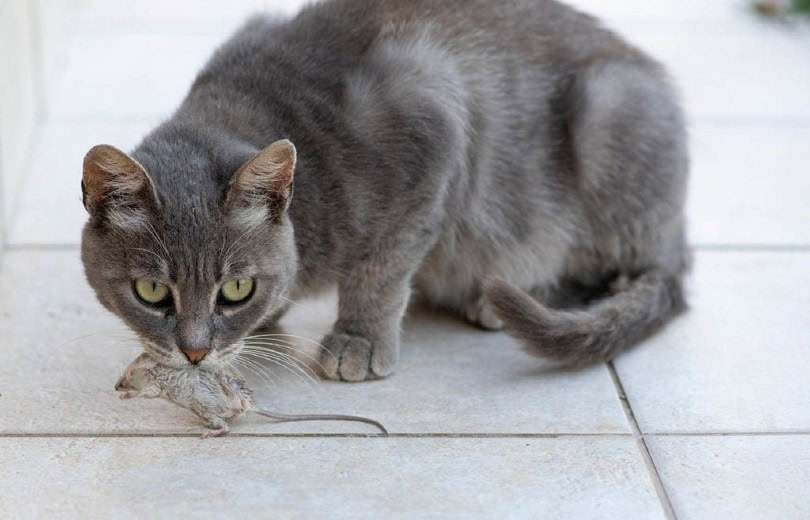

Final Thoughts
Cats have lived alongside humans for thousands of years, and your cat has probably been around you long enough to know what gets your attention. If your cat has done something to upset or anger you, the first thing to know is that they have not acted out of malice or spite. Sometimes, after our cats have upset us, it may seem like they are apologizing, which is a lovely thought. However, this is anthropomorphizing their actions when in reality, they are just trying to do away with your negative energy.
Your cat knows when you are upset, but won’t feel guilt like we do. Instead, their actions, such as purring, headbutting, grooming, and, of course, cuddles, are an attempt to appease or reconnect with you, which is just as good as an apology, anyway.
Featured Image Credit: Magui RF, Shutterstock
